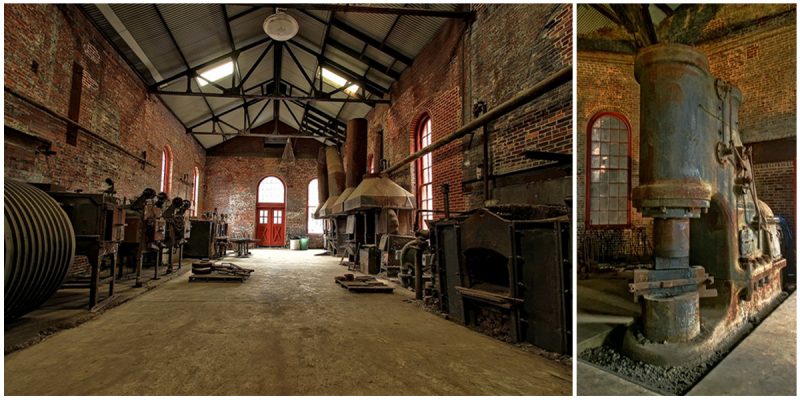The growth and development of the American iron and steel industry was one of the wonders of industrialism.
Established in 1852, the Cambria Iron Company (later known as the Cambria Steel Company) is a former company located in Johnstown, Pennsylvania that made many important contributions to the iron and steel industry.
Before Cambria, only a very few small-scale blast furnaces and foundries existed in Johnstown. The inventor, William Kelly implemented many of his iron and steel technology advances at this location and the facility attracted some of the innovators of the steel industry and it was also the site of several major technological innovations.
The Blacksmith Shop is the most historically significant of the structures and produced a wide range of metal products throughout the 19th and 20th the centuries.
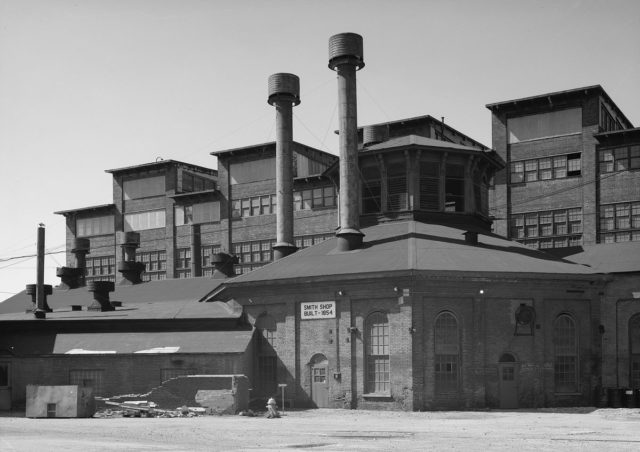
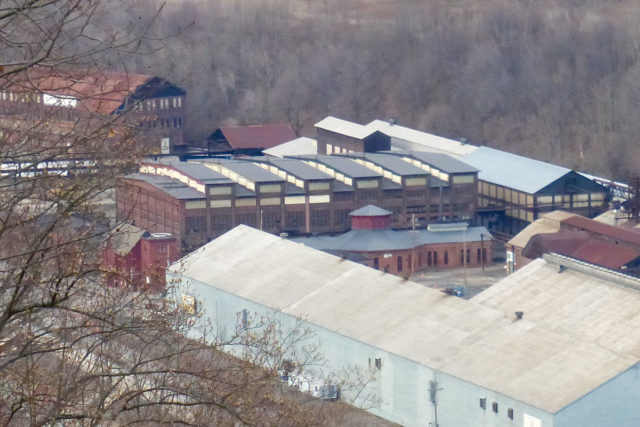
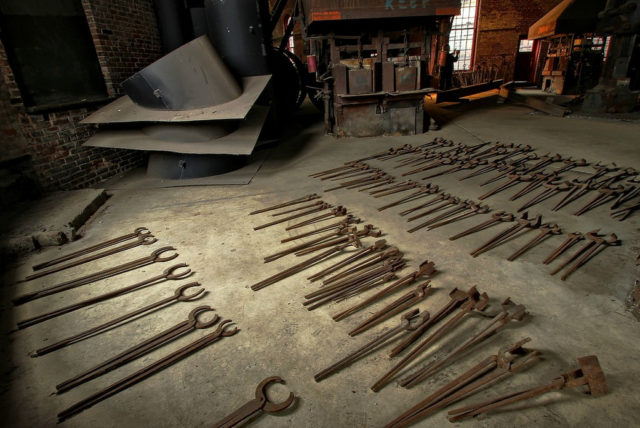
It is a large brick structure that was constructed in at least five stages. The original building is octagonal shaped with an octagonal cupola, containing heavy-timbered roof trusses with iron tension rods, common-bond red-brick walls, and pilasters.
In the 1870s, a rectangular wing was added to the west elevation and in 1885 another wing was added on the east elevation. It retains a full complement of original turn-of-the-century forging and smiting tools and a variety of steam-powered hammers, including a ten-ton steam hammer owned by the Smithsonian Institute and leased to the Redevelopment Authority.
With around 200 workers employed, the Blacksmith Shop was capable of doing all the repairs of the rolling mill, blast-furnace, mines, and of building all the cars for the ore and coal drifts.
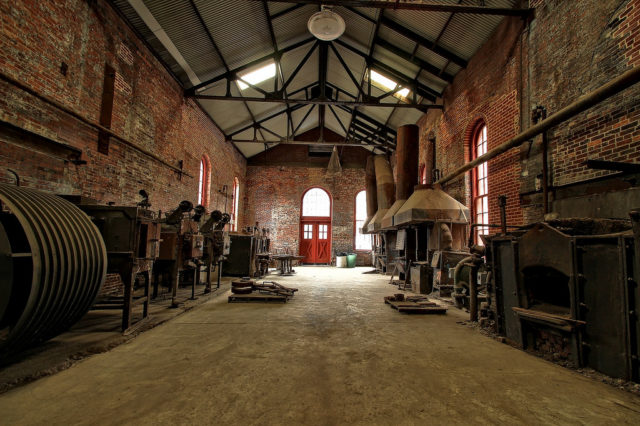
During the 1970s, Cambria Iron Works cut back its operations for a variety of reasons. The facilities were aging; there was a lack of accessible transportation; there was difficulty in complying with environmental regulations; and as a whole, the steel industry was hit by tough overseas competition.
The Midvale Steel & Ordnance Company of Nicetown, PA which helped pioneer the steel formulas used in the early automotive industry bought the Cambria Steel Company in 1916 but in 1923 sold it to the Bethlehem Steel Company, one of the largest shipbuilding companies at the time.
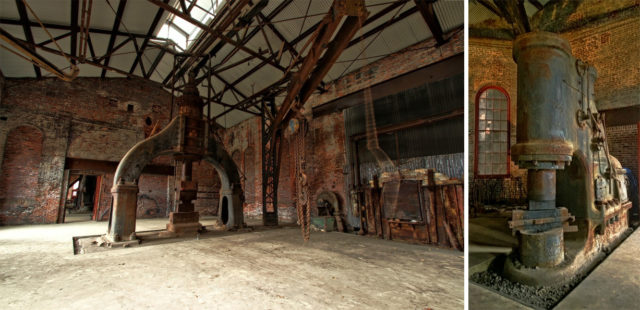
The Johnstown Redevelopment Authority was able to purchase three buildings located in the Cambria Iron Works complex from Bethlehem Steel.
Bethlehem Steel filed for bankruptcy in 2003 and the International Steel Group was able to purchase the company’s assets. In 2003, the Johnstown Redevelopment Authority gained title over 10 acres of land within Cambrian Iron Works.
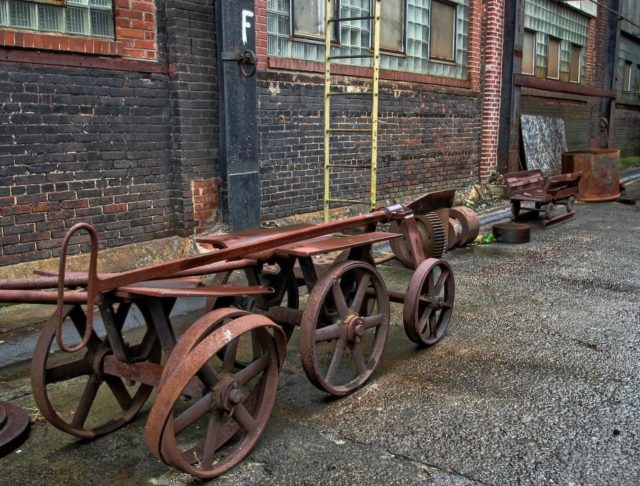
With the decline of the steel industry and the closing of Bethlehem Steel Corporation in 1992, the Blacksmith Shop has since been vacant. In 2001, the Johnstown Redevelopment Authority acquired three key structures within the complex (the Blacksmith Shop, the Machine Shop, and the adjacent Carpenter Shop) from the Bethlehem Steel Corporation, in order to return the buildings to a viable industrial, commercial, and tourist site under a mixed-use conceptual plan.
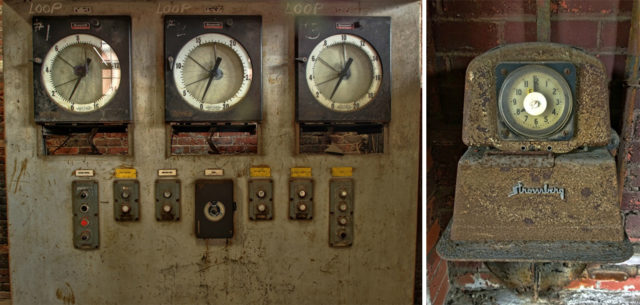
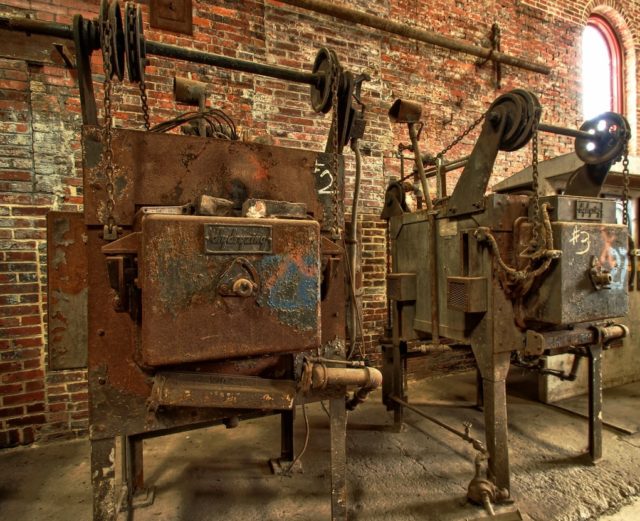
Plans for the site call for the building to remain a blacksmith shop where artisans will perform their craft to let tourists see the steelmaking heritage of Johnstown and the art of blacksmithing.
